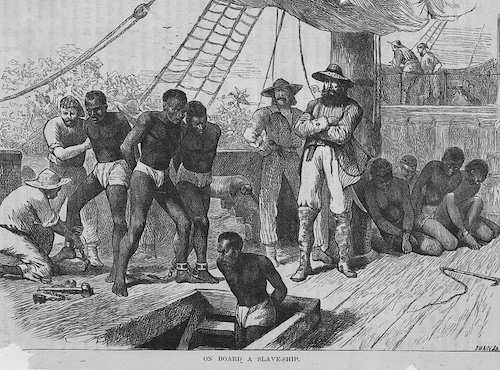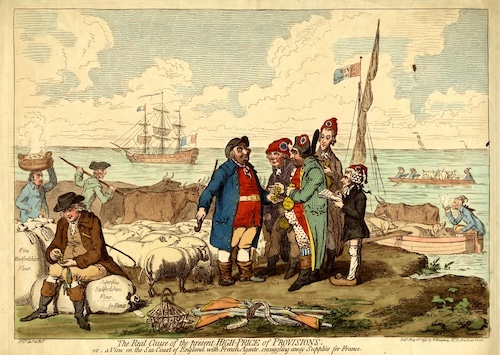England and other European powers used the system of mercantilism to build wealth. This system focused on increasing a nation's wealth by exporting more than it imported. Under mercantilism, colonies existed to supply raw materials to the mother country and to buy its manufactured goods in return. Between the 16th and 18th centuries, England passed laws like the Navigation Acts to make sure this system worked. These laws controlled who the colonies could trade with and helped England keep most of the profits. Colonists had to ship exports like tobacco, sugar, and indigo only to England, and they had to buy most imports from England, too.
An important part of mercantilism was the triangular trade. Ships left England carrying manufactured goods to Africa. There, they were traded for enslaved Africans, who were forced aboard crowded ships and trafficked on the Middle Passage, a brutal and deadly journey across the Atlantic Ocean to the Americas. The enslaved Africans were sold for profit and forced to work on plantations growing cash crops such as tobacco, sugar, and cotton. Those crops were then shipped back to Europe as exports to bring more wealth to England.

Colonial economies grew because of this system. In places like Virginia, growing tobacco as a cash crop became the main way colonists made a profit. Many colonial businesses also thrived. New England saw growth in timber, shipbuilding, and fishing, especially as raw materials were turned into products both for colonial use and for export to England.
But the system had limits. Colonists often resented that they could not trade freely with other countries. These trade restrictions sometimes led to smuggling. Tensions grew as colonies saw profits being sent directly to England while colonial families had limited control. Colonists had raw materials like tobacco to sell, but had to pay high prices for imported goods.

Additionally, the Transatlantic slave trade, powered by demand for labor to grow cash crops, continued to bring a large number of enslaved Africans into the colonies. To meet the demand for raw materials, plantation owners purchased more enslaved Africans for forced work in their fields. The number of enslaved people in the colonies increased as the plantation system expanded.
By the end of the 1600s, the triangular trade and mercantilism had helped colonial economies grow rapidly. Colonists acquired new skills in agriculture, navigation, and trade, and England became wealthier through the export of goods and taxes. However, the colonial dependence on this system and the growing human costs also fueled tensions that would shape the future of colonial America.
